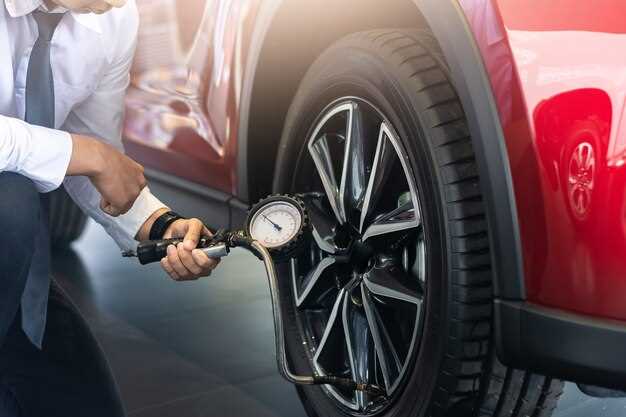
In the world of commercial transportation, tire performance is paramount. One of the most effective ways to enhance tire performance is through the use of nitrogen to fill them. Unlike traditional air, nitrogen provides a number of significant advantages that can improve safety, efficiency, and overall cost-effectiveness.
Maintaining optimal pressure in tires is critical for ensuring their longevity and performance. Nitrogen-filled tires tend to retain their pressure for a longer duration, reducing the frequency of inflation checks and potential downtime for fleet vehicles. This characteristic not only extends tire life but also improves fuel efficiency, as properly inflated tires reduce rolling resistance and enhance traction.
Another noteworthy benefit of using nitrogen is its ability to minimize oxidation and moisture inside the tire. Regular air contains moisture, which can lead to internal corrosion and premature tire failure. By utilizing nitrogen, fleets can maintain better conditions within the tire, ultimately leading to safer road performance and less frequent replacements.
Improved Tire Pressure Retention with Nitrogen Fill
Using nitrogen to fill commercial tires offers significant advantages in maintaining tire pressure. One of the key benefits lies in nitrogen’s molecular structure, which is larger than that of oxygen. This characteristic minimizes the permeation rate through the tire walls, leading to better retention of pressure over time.
In typical air-filled tires, oxygen can slowly migrate out, causing a gradual loss of pressure. This not only affects the performance of the tire but also impacts fuel efficiency and tire longevity. In contrast, tires inflated with nitrogen experience a much slower rate of pressure decrease, resulting in fewer frequent pressure checks and adjustments.
Maintaining optimal tire pressure is crucial for safety and performance. Under-inflated tires can lead to increased wear, reduced traction, and higher fuel consumption. By opting for nitrogen, commercial fleets can ensure their tires remain properly inflated longer, enhancing overall vehicle performance and safety.
Furthermore, the stability of nitrogen pressure is less affected by temperature fluctuations compared to standard air. As temperatures rise or fall, nitrogen-filled tires maintain more consistent pressure levels, helping to preserve tire integrity and performance under varying conditions.
Reduced Tire Wear and Enhanced Performance

Using nitrogen to fill commercial tires offers significant advantages related to tire longevity and performance. One of the primary benefits of nitrogen is its larger molecular size compared to oxygen. This characteristic minimizes the rate at which nitrogen escapes from tires, leading to more consistent tire pressure over time. Proper tire pressure is essential for optimal contact with the road, which directly influences tire wear and handling.
When tires are appropriately inflated with nitrogen, they maintain their shape and performance standards for a longer duration. This consistent pressure helps in reducing uneven wear patterns, a common issue caused by fluctuating tire pressures. Consequently, businesses can experience extended tire life, resulting in fewer replacements and lower operational costs.
Moreover, nitrogen-filled tires experience reduced heat buildup during operation. Since nitrogen does not expand and contract as much as air does under temperature changes, tires operate cooler. Cooler tires are less prone to damage and degradation, further contributing to their longevity. This enhanced performance ensures that vehicles handle better, provide improved fuel efficiency, and deliver a safer driving experience.
In summary, switching to nitrogen for fill in commercial tires can significantly reduce tire wear while enhancing overall performance. Adopting nitrogen inflation not only proves beneficial for the tires but also contributes to overall operational effectiveness and cost savings for businesses.
Environmental and Cost Benefits of Nitrogen Inflation

Using nitrogen in commercial tires offers significant environmental and cost advantages compared to traditional air inflation. One of the primary benefits is the ability to maintain tire pressure more consistently over time. Nitrogen molecules are larger than those found in regular air, which reduces the rate of leakage through tire walls. This consistent pressure contributes to improved fuel efficiency, resulting in lower greenhouse gas emissions.
Properly inflated tires, thanks to nitrogen, enhance vehicle performance and safety, thus reducing the frequency of breakdowns and tire-related accidents. This increase in performance leads to savings on maintenance costs and replaces tires less frequently, which lowers material waste and extends the lifespan of both tires and vehicles.
Furthermore, the environmental impact is compounded when considering fleet operations. Consistently inflated tires promote better fuel economy across an entire fleet, leading to significant reductions in fuel consumption. The result is not only financial savings but also a decreased carbon footprint, aligning commercial transportation with more sustainable practices.
In conclusion, the environmental and cost benefits of using nitrogen in tire inflation are compelling. By maintaining optimal tire pressure, nitrogen contributes to lower operational costs and a more sustainable approach to transportation.




